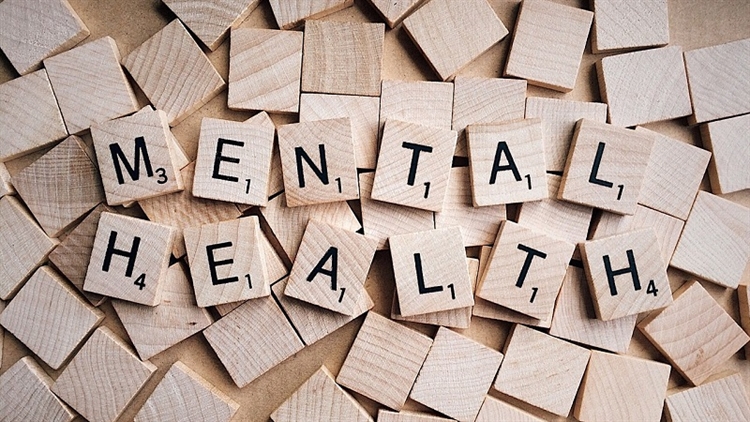Thu 21 May 2020

‘Kindness’ has emerged as a key word and social value since the onset of the COVID-19 crisis, making it a particularly appropriate theme for this year’s Mental Health Awareness Week. From the ‘Clap for Carers’ ritual each Thursday night and the one million sign-ups for the NHS volunteer scheme, to the small unseen good deeds passing between neighbours, family members and friends in recent weeks, Goethe’s observation that kindness is ‘the Golden Chain by which society is bound together’ rings truer than ever before.
This shift in societal feeling and behaviour is accompanied by a desire for such practices and mindsets to be sustained beyond the end of lockdown -- a YouGov survey for the Mental Health Foundation in April 2020 found that 72% of UK adults agreed with the statement that ‘It’s important that we learn from this crisis in order to be more kind as a society’.
The positive social and societal benefits of kindness -- whereby positive relationships and connections are forged, and social harmony is created and sustained -- are significant. There are numerous personal benefits to acts of kindness too; from boosting energy levels, lifespan and happiness, alongisde the ‘love’ and ‘happiness’ hormones, oxytocin and serotonin, to decreasing stress, anxiety, pain, blood pressure and depression.
This is all important to bear in mind in the coming weeks and months, as mental health will continue to come under strain, across our nation and workforce. In regular times, mental health is the third most significant cause of absence in UK workplaces, affecting one in four adults. However, in the midst of the current global crisis and its aftermath, it is crucial that mental wellbeing is of special concern to individuals, communities and organisations alike. In this current crisis, those with pre-existing mental health issues may be particularly affected, whilst some people may experience poor mental health for the first times in their lives.
To provide guidance on supporting one’s own mental wellbeing and that of others, Dods D&I compiled a free online agenda for Mental Health Awareness Week, which you can find here. The agenda consisted of five video contributions from several of our most popular expert speakers, who provide guidance and insight. Below, you can find a snapshot of some of the wisdom shared:
1. We all in the same storm, but in different boats: Santander UK’s Wellbeing Lead Drew Baxter-Gibson reminded us of this fact, in his contribution on supporting staff in different contexts. Our perspectives all are unique, meaning that, despite shared circumstance, our individual experiences all differ. Acknowledging this is key to empathy.
2. Awareness and acknowledgement key to resilience, both in ourselves and others: Mindset Coach Susie Ramroop, in her presentation on resilience, explained that in order to ‘bounce back’ from adversity, it is vital that we reframe how we understand the difficulty we face. Awareness and acknowledgement are fundamental to this reframing.
3. Love, kindness and compassion are crucial bases for positive mental health: Leatham Green, Chief Executive of the Mindful HR Centre and PPMA Executive Director, emphasised that starting from a place of kindness and empathy for yourself allows us to stay closer to the values that give our lives and work meaning. These qualities influence actions, thoughts and conversations, making deeper and more authentic relationships with others possible. Our own mental wellbeing is protected over time, as a result, whilst also enabling us to empathise with others and to provide the psychological safety which mentally ill-colleagues and loved ones need, in order to recover.
4. Quality attention enables active listening: Emma Mamo, Head of Workplace Wellbeing at Mind, highlighted that providing and demonstrating undivided attention is crucial, in enabling others to open up. From ensuring all distractions are eliminated, and maintaining eye contact and making affirmational listening noises, to refraining from jumping in with solutions and questions, Emma provided valuable pointers for facilitating important and potentially difficult conversations.
5. Making organisations kinder should be a key focus for HR: Tony Vickers-Byrne, member of the National Forum for Health and Wellbeing at Work and retired Chief Advisor for HR Practice at CIPD, addressed the topic compassionate management. Tony used anecdotes about care given by the NHS to illustrate how small acts of care and kindness can affect and stay with people over time with anecdotes about care given by the NHS, and ultimately made the point that kindness ought to be an integral goal of HR going forwards.
Supporting Mental Health in the Workplace London will take place in Central London on 21 November 2020. Actionable insight will be provided by expert speakers, and delegates will come away with a firm understanding of policy and best practice to support mental health at work.
Sources:
Mental Health Foundation, 'Why kindness matters in public policy', (May 2020), https://www.mentalhealth.org.uk/campaigns/mental-health-awareness-week/kindness-policy-asks
Random Acts of Kindness, 'Kindness Health Facts', https://www.dartmouth.edu/wellness/emotional/rakhealthfacts.pdf
Rowland, Lee, 'Kindness – society’s golden chain?', (February 2018). British Psychological Society, https://thepsychologist.bps.org.uk/volume-31/february-2018/kindness-societys-golden-chain
Svoboda, Elizabeth, 'Pay it Forward', (July 2006). Psychology Today, https://www.psychologytoday.com/gb/articles/200607/pay-it-forward
View all news